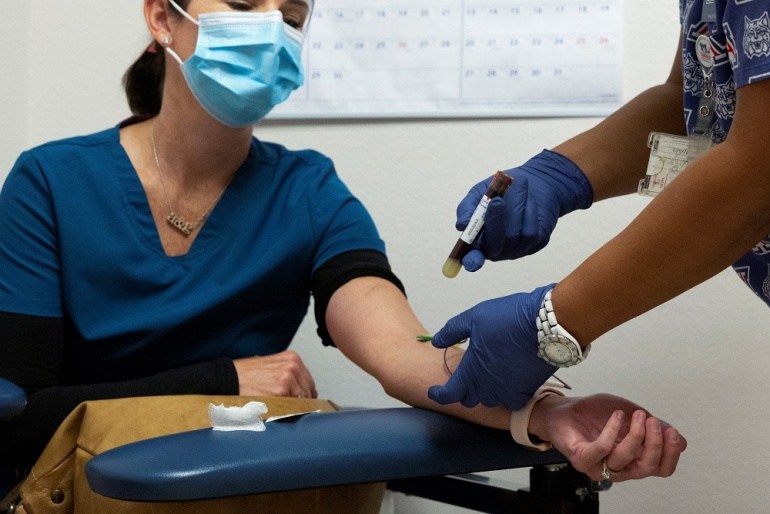The amount of time antibodies against the new coronavirus persist in the human body varies from one person to another, researchers studying immunity response among Brussels hospital staff said on Thursday.
Announcing the conclusion of the third phase of a study in over 2,000 employees of the UZ Brussel university hospital, the study's authors said the results indicated that some people kept their antibodies against the virus longer than others.
Carried out over five months, the study found that just over 50% of participants had lost the Covid-19 antibodies that had been detected in their blood in earlier stages, while others kept them, in results which feed new clinical data into ongoing research surrounding acquired immunity to Covid-19.
Related News
- Coronavirus immunity lasts up to six months, study shows
- Healthy woman re-infected with coronavirus in Belgium
- Belgium 'still a long way' from herd immunity, says Steven Van Gucht
"At this stage, we do not know the exact reason," Professor Sabine Allard said in a press release. "One explanation could come from the seriousness of Covid-19 symptoms at the time of infection, but this point still needs to be studied."
The study was launched in mid-May and enrolled 2,662 out of some 3,800 staff members of the hospital working in medical, para-medical and non-medical positions.
Participants gave blood samples in three rounds spanning over the five months which saw Belgium dip in and out of the first lockdown: from 18 May to 12 June, from 13 July to 7 August and from 5 to 30 October. Only participants who took part in phase 1 were allowed to give blood samples during phase 3.
Of the 2,152 participants that did not have antibodies in phase 1, less than 1% (37) developed them by phase 3. Out of the 185 participants who had antibodies during phase 1, only 49.7% still had them by phase 3, the researchers found.
"Out of the total 2,662 participants, 7.4% tested positive for Covid-19 antibodies in phase 1, 6.8% in phase 2 and 5.5% in phase 3," the study found, noting that the study showed that the prevalence of coronavirus antibodies among hospital workers was "hardly higher" than that observed among the general population.
The study also found that a person who had tested positive for the virus after a swab, or PCR test, did not necessarily develop antibodies against the virus.
Between February and the end of the last phase in October, the study found that the number of participants who had been diagnosed for Covid-19 through a PCR test but who had not developed antibodies ranged between 10.2% and up to 24.2%.
Additional research must be carried out to explore the possibility that those who did not initially develop antibodies may have done so at a later stage or had developed a different immune response to Covid-19, Prof. Allard said.
"Antibodies are not the only element conditioning the immune system's response, white blood cells, for instance, can combat pathogens when they enter the body," she added.
Gabriela Galindo
The Brussels Times

